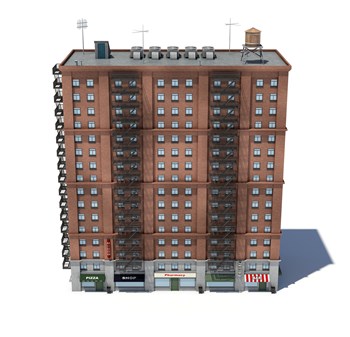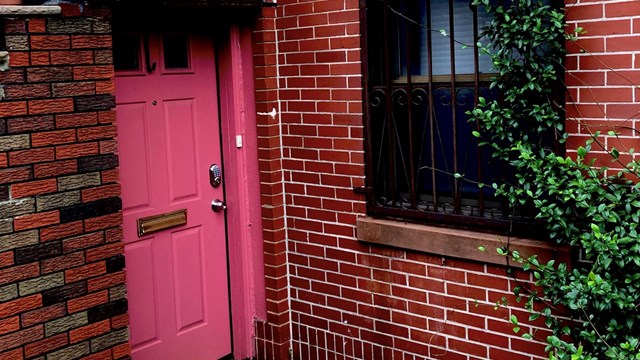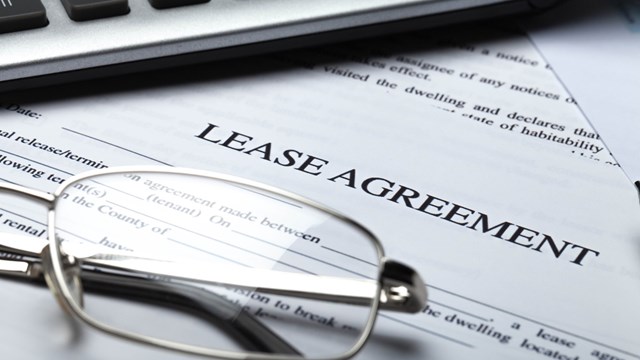
In many cases in which a residential condo or co-op property includes street-level commercial space, the retail tenant leasing that space is a good fit with the apartments above. Whether it's a supermarket, an apparel business, a sporting goods store, or a salon, that ground-floor vendor (or vendors) can be a boon to the community -- it may actually add value to those who live above it and frequent the shop(s).
But in some situations, things don't mesh as seamlessly. Certain types of commercial tenants can bring aggravation to residents subjected to an array of sensory assaults sent their way. Bars and restaurants can bring noise at all hours of the night, not to mention smells that may not only be pungent, but can attract vermin as well. Gyms can be a literal headache for anyone working at home when that spin class is happening downstairs. And any popular retail tenant that attracts lots of foot traffic can also bring with it concerns about crowds and loitering, which no resident wants to contend with while they're just trying to get into their home.
Bottom Line
“What typically happens in a lot of offering plans is the sponsor or developer either keeps the retail for themselves and rents it out, or they plan to sell it to an investor,” explains Stephen Elbaz, President of Esquire Management in Brooklyn. “In either case, they write that offering plan in a very liberal manner such that the commercial unit owner retains many rights, which can cause problems with residents.”
Jay Cohen, Vice President and Director of Operations at New York City property management firm A. Michael Tyler Realty Corp., relates an ongoing situation that reflects the conflicting interests that can arise when commercial and residential space occupy a single property:
“A restaurant or bar moves in, and now there are sound issues late at night because they're playing music after 11 p.m.," he says. "The bass is booming, and the residents' quiet and peaceful enjoyment is being disrupted. So they look to the board to handle the issue -- but how do you go after a commercial tenant when they're just trying to operate their business? So we call in an acoustical engineer to measure the decibel levels at certain times during the course of the day. And once we see the report, the board will have to take action against the commercial tenant -- most likely by attempting to force them to take corrective measures, including the installation of soundproofing material, or even closing up shop an hour or two earlier.”
While the above provides a potential recourse when noise complaints surface, it doesn't do much to mitigate problems with something like odor. But Jeffrey M. Schwartz, a partner with Manhattan-based law firm Schwartz Sladkus Reich Greenberg Atlas LLP, suggests that all is not lost when something smells funny.
“In today's climate, you'll get people hanging outside of restaurants smoking cigarettes, either outside the entrance to the building or immediately below the second floor, and smoke goes up into people's windows,” he notes. “Or cooking odors, if the proper ventilation is not in place, can escape into the building. This can be measured; we have an environmentalist come in who can actually measure...odors going into the building.”
Legal Recourse
Regardless of the leniency of a building's operating documents where commercial tenants are concerned, no tenant is allowed to act in any way that constitutes a nuisance to those living in the building, according to Schwartz. “Different people have different standards as to what's objectionable," he says. "Very often, you need to rally several people who are willing to attest that whatever is being complained about is bad enough that no one who lives in a residential apartment should be expected to live with it. A lot of this is subjective, but some of it is not. We had a building with a Japanese restaurant that was running lunch all day, and the odors were going into the apartment. They had to install a whole new venting system. Same with a situation wherein a retailer was selling truffles, and the smell was permeating the lobby.”
All of this talk of experts and installations begs the question: if the ground-floor retailer pushes the residential tenants to shell out for consultants or alterations, who foots that bill? According to Schwartz, it depends on the building's documents.
“Very often there's language that states that if there's a default under the bylaws, any cost incurred by the co-op or condo to remedy that default or to force the occupant to cure the default, those expenses can be recouped,” he explains. “But it has to be in the bylaws. Again, what you're typically looking at is the creation of nuisance -- objectionable odors, that type of thing. Although very often the developer has put in these 'super-rights' for the operators or owners or tenants of the commercial space, there are some general prohibitions that they're not exempt from, pertaining specifically to these things like odors, nuisance, and noise. That is what you have to point to, and then give them the opportunity to address it. If they don't, and you end up having to go to litigation, very often the costs are reimbursable, should you prevail.”
Mike Odenthal is a staff writer at The Cooperator.






Leave a Comment